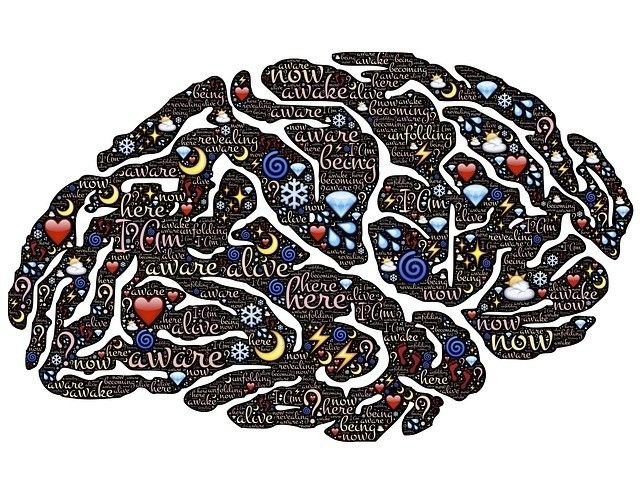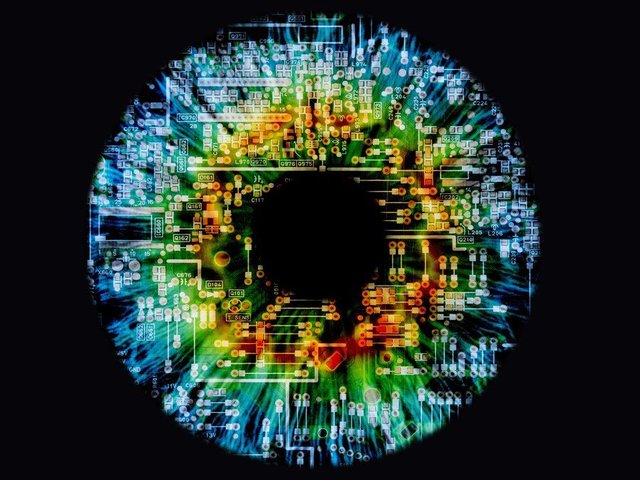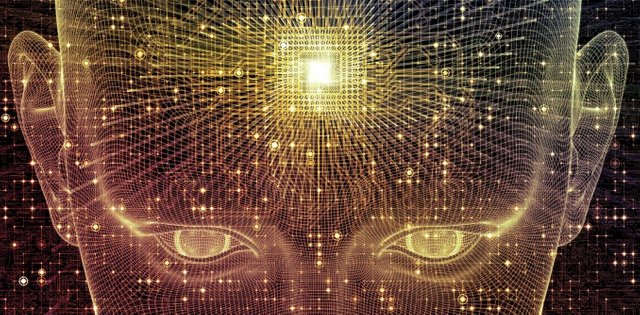Why I am Optimistic About the Science of Consciousness (Contra @rachelsmantra)
This is a reply to @rachelsmantra's Why I am Skeptical About The Science of Consciousness. I make the case for optimism about the science of consciousness. Optimism: Every problem that is interesting is also soluble.
The Quest for Consciousness

Consciousness was once the domain of philosophers and poets. But now scientists are trying to study it empirically. In this post I'll explain why I'm optimistic of this succeeding.
The field of consciousness studies will never become a legitimate science until it has tools to measure consciousness accurately. Especially in "test cases" like the vegetative state, infants, sleep, non-human animals, and other cases that test the limits of consciousness.
But in order to measure something you have to know where to look. You wouldn't go looking for heat in the snow. To know where to look consciousness studies has to agree where to look.
- Some well-respected theorists believe only fully developed humans are conscious.
- Some well-respected theorists believe most animals including humans are conscious.
- Some well-respected theorists believe all life forms, even bacteria, are conscious.
- Some well-respected theorists believe inorganic matter can be conscious (panpsychism).
This makes it difficult to know what we are looking for. However, most can agree that we are talking about the subjective qualia of consciousness - what philosophers often call phenomenal consciousness, where there is a sense that there is "something-it-is-like" to be conscious.

Building a C-Meter
Surely a goal of consciousness studies is to build a consciousness-meter or C-Meter.
Building a C-Meter is not without difficulty. But without one, how can you have a science of consciousness? After all, the C-meter is what will allow you to distinguish between the test cases like the vegetative state, infants, sleep, non-human animals, and other cases that test the limits of consciousness.
What theory do you use to build it? Different theories of consciousness will instruct you how to build a C-Meter differently. Ideally a C-Meter should be able to measure anything and say whether and to what extent it is conscious.
So you've built your C-Meter. How do you confirm that it's working properly?
Typically you would try to find a "fixed point" akin to the boiling and freezing of water.
But with consciousness we only know a few fixed points with confidence because different fixed points are predicted by different theories and different theories interpret the existence evidence differently.
What we do know is that awake and dreaming humans are conscious, and most agree that medium-sized animals are conscious as well. We also know that the quality and complexity of consciousness varies in different human states (waking, dreaming, psychotic).
Thus we end up with a range of relatively agreed upon set of conscious states and their relative difference, as well as a few edge cases, like small animals, fetuses, or even insects and bacteria, as well as (soon enough) artificially intelligent entities.

Epistemological Certainty
We're trying to measure something that is inherently subjective. You can know directly that you are conscious, but not that I am. This means that we cannot measure it directly from the third person. Like all scientific objects, a theoretical understanding is needed to measure it indirectly.
But we don't know which theory is correct and different theories suggest different ways of measurement. We need a C-Meter that is universally accepted by the field of scientists studying consciousness to be a valid method of detecting consciousness.
There are as many theories of consciousness as there are people who study consciousness. Everyone has their own pet theory. Most theorists talk past each other and are engaged in more of a verbal debate than a substantial debate.

The Way Forward
The field of consciousness studies needs to stop with the verbal debates and get to producing theories that are bottom-up/rigorous instead of high-level/leaky theories of consciousness. The distinction is that the former kind should apply clearly and equally to any arbitrary cubic foot of space-time, and offer testable predictions at multiple levels of abstraction, whereas the latter may only apply to human sorts of minds in non-esoteric or edge-case scenarios. (Johnson, Principia Qualia)
Further, to make scientific progress we need to we solve the “Pretty Hard Problems” (Aaronson, Chalmers, and Griffith):
- PHP1: “Construct a theory that matches our intuitions about which systems are conscious.”
- PHP2: “Construct a theory that tells us which systems are conscious.”
- PHP3: “Construct a theory that tells us the magnitude of a system’s consciousness.”
- PHP4: “Construct a theory that tells us which systems have which states of consciousness.”
Instead of arguing about the metaphysical impossibility of understanding consciousness, or wallowing in the delusion that humans have some mystical soul that can never be captured by rigorous understanding we need a new understanding of consciousness.
The stakes could not be higher, with massive implications for progress in realms as disparate as spirituality, psychology, epistemology and morality, AI, and perhaps even physics.
References
https://steemit.com/psychology/@rachelsmantra/why-i-am-skeptical-about-the-science-of-consciousness
http://opentheory.net/PrincipiaQualia.pdf
https://www.scottaaronson.com/blog/?p=1799
Nice post, but how do you figure your C-meter? I guess direct measurement of brain activity with EEG/ fMRI is the best albeit indirect method we have for measuring consciousness to date. To measure something as intangible as consciousness directly is perhaps a daunting task:)
Got to respect the research.
Nice response!
I still don't think you have gotten yourself out of the difficulty though. You say that a theory of consciousness must match our intuitions about consciousness. Whose intuitions? They differ from person to person, theorist to theorist. And why trust intuitions? They might be generated by distinctive brain mechanisms that lead us astray.
I don't think intuitions about consciousness is the best place to get a science of consciousness started because intuitions vary so wildly from person to person. For some people it's intuitive that a bug is conscious. For other people it's intuitive that only humans are conscious.
Thank you.
I agree that intuitions can be problematic in edge cases, but I think most would agree that awake, dreaming, psychotic and psychedelic states of humans are different conscious states, and that medium-sized animals are conscious. So already there we have a range of different states that can be compared and analyzed against their non-conscious counterparts (e.g. deep sleep, anesthesia and seizures). Edge cases like small animals, fetuses, or even insects and bacteria, as well as (soon enough) artificially intelligent entities, is something one cannot deal with in isolation without a candidate bottom-up theory.
I don't know - I would contest that whether or not medium-sized animals are conscious depends entirely on how we define consciousness. If we define it to be higher-order self-reflection that it's not clear they are conscious. But if we just mean by it "phenomenal states" then plausibly, yes, there is something-it-is-like to be a medium-size animal. But how the hell can you study subjectivity like phenomenology scientifically? We assume there is something-it-is-like to be a bat but psychology is limited to studying behavior and third-person observable properties so how could we ever know? For me it just leads down this giant rabbit hole and we are better off sticking with behaviorist epistemology and neuroscience. To the extent we engage with "cognitive" stuff at all we have to operationalize it in terms of computationally tractable processes and it's unclear what those have to do with consciousness. In my opinion we are better off just not talking about consciousness: operationalize and be done with it.
Consciousness is the last great mystery, IMO. Would be interesting to see how we will go about solving it, if at all.
In his remarkable book The User Illusion, Thor Northrendars states: 90% of what we see, hear, feel - is generated within us and has nothing to do with objective reality. For a fraction of a second before consciousness begins to evaluate reality, the brain has already formulated its own attitude to this. It turns out that, having switched on, our consciousness evaluates not the objective reality, but the formed image provided by the brain.
You, in all probability, have heard about the so-called "blind spots" of our vision. In each eye there are such points. In our eyes there are photoreceptors and retina, which in symbiosis and provide us with the ability to see. It functions as a sensitive film - information that is transmitted through the rays of light from the outside world is recorded. Nevertheless, there is a point of attachment of the optic nerve to the retina - this is the very place and forms a gap in the whole canvas of visual perception. So, the brain gets zero information from this point. Therefore, we should see the picture surrounding us with "holes" ?!
But this for some reason does not happen. So our brain manages to insert the missing elements of the puzzle?
Back in 1781, Kant insisted that for man there are two worlds: "noumenal" (or objective, real) and "phenomenal," which is our version of the real world, but missed through personal perception.
We evaluate and interpret what is happening, based on our personal experience, our knowledge, habitual phenomena. There is a clearly expressed tendency to feel what we hope to experience. If we are sure that some actions can cause ridicule of colleagues, and not admiration, then we will everywhere see the scornful smirks of employees, even if in fact this is not in sight.
Therefore, we recognize that hallucinations are a phenomenon that we regularly encounter. This can even be called a special skill, developed by the brain in the process of growing up to assess the surrounding reality and facilitate the existence in this world.
very nice and very useful for all
Nice Article I Love your This Approach
This is a really well-thought out response - I think you're entirely right - operationalising the concept of consciousness is fraught with difficulty...
This is an interesting talk which contrasts the mechanistic scientific world view to what they speaker refers to as a spiritual worldview - he seems to be arguing that you can never reduce the concept of consciousness to component parts, and there are many, many advantages to that.
Let's assume that the yogi is wrong about consciousness but right about making meaning. We would then have this hopeful meaningful society premised on differing fallacies. It's an interesting dillemma.
It's the oldest in the postmodern book - between freedom through truth and freedom from truth!
I see your hindi idealist with my hindi pragmatist!
I'm not sure i grokked your remark....Are you saying the age old squabble over whether consciousness is primary was somehow affected by a rather insignificant school of thought in the late 20th century? BTW: most assessments of the pomo's were correct although they did get the 'there is no absolute truth thing wrong'. The absolute truth is we don't know what the nature of reality is and that's a fact......
My method is perfect for finding the freezing point of consciousness, Ask them who you are and if they answered at least with a "huh?" they are conscious. 😅
Thanks For Upvote/ Reply
New Followers get 0.001 SBD$ and an upvote for free!!
Just follow @abkktk and
we follow back
send you 0.005 SBD to your wallet
Resteemed to 4k+ followers and upvoted heavier job done
@abkktk
Keep Steem On @clains!! I'll be right here waiting your next post..